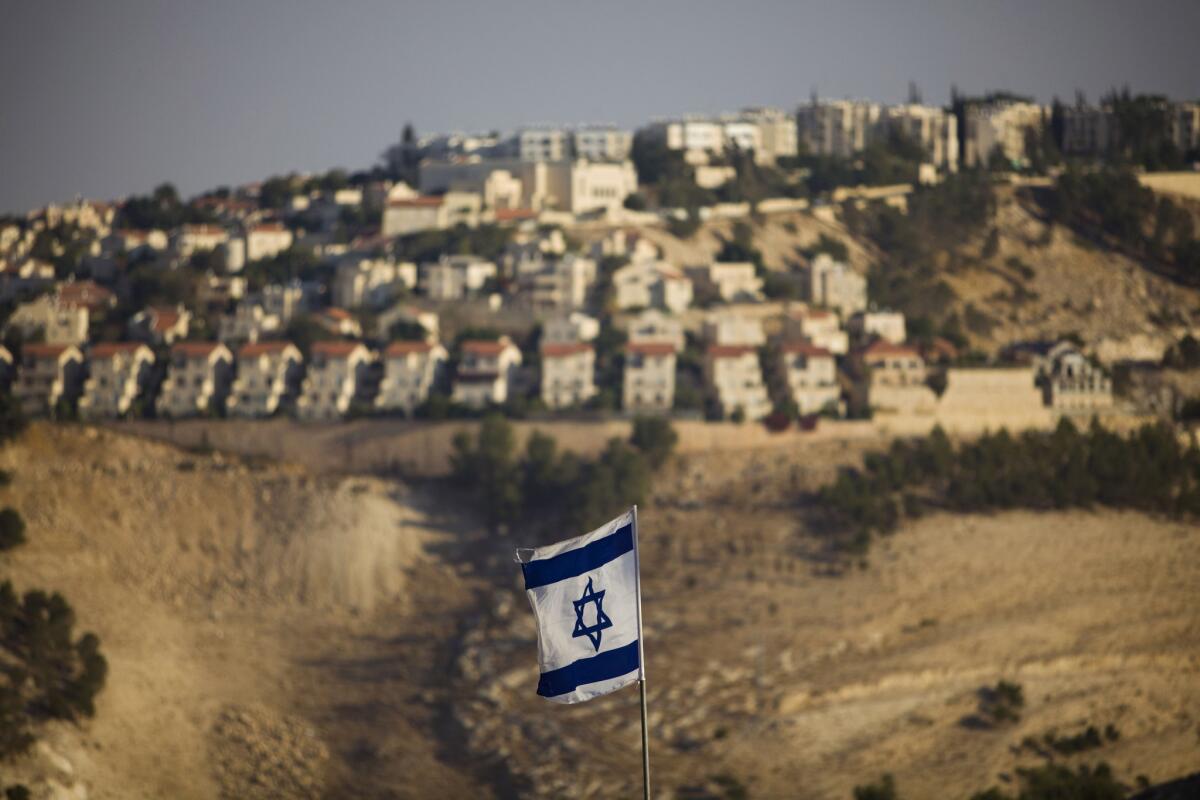Will Israel’s Arabs get a say in its future?

- Share via
There were a number of disturbing findings in last week’s poll by the Israeli Democracy Institute and Tel Aviv University, released just as negotiators were preparing to resume Middle East peace talks in Jerusalem on Wednesday. But one less-remarked-upon point deserves further discussion: Apparently, 49% of Jewish Israelis (a narrow plurality) believe that if a final peace deal is reached at the talks and submitted to voters for their approval, Arab citizens of Israel should not be permitted to vote in the referendum. In other words, if the Jews of Israel don’t support the deal, it wouldn’t be adopted.
To be clear, few people are expecting a final deal to be reached in the near future. And even if one is, the whole idea of a referendum is controversial. The argument in favor is that it would legitimize the final agreement, so that Israelis wouldn’t feel it was imposed on them by their political leaders. Prime Minister Benjamin Netanyahu has promised to hold such a referendum, and there are precedents, including the 1998 Northern Ireland referendum on the Good Friday peace agreement.
But the idea of disenfranchising non-Jews in order to ensure that the peace deal is seen as legitimate by a “Jewish majority” is a truly bad idea and one that cuts to the core of Israel’s lifelong identity crisis. Since its establishment in 1948, Israel has wanted, on one hand, to be a Jewish state, where Jews can find safety from persecution and guide their own destinies without worrying about discrimination and anti-Semitism. On the other hand, Israel has also wanted to be, and professed to be, a democratic state. Its Declaration of Statehood, issued in May 1948, reflected this congenital dichotomy, noting the “right of the Jewish people to be masters of their own fate … in their own sovereign state” but also promising “complete equality of social and political rights to all its inhabitants irrespective of religion, race or sex.”
That’s a tough line to walk. If Israel is a state for the Jews, how can it also be a state for all? But in certain ways, it has succeeded, making a place for itself as the tiny Jewish democracy in a sea of repressive, authoritarian Arab governments. Today, just over 20% of Israel’s citizens are Arabs — mostly Muslims, but Christian and Druze as well. Though they have undoubtedly faced discrimination, they have been allowed to become citizens, to vote in free elections, to criticize the government and to run for public office.
But if they’re full citizens of a democratic state, why would they now be denied the ability to participate in a crucial national debate? The discussion of disenfranchising them from a peace referendum continues a troubling trend that has included recent proposals to make them sign loyalty oaths and to disqualify certain Arab parties from elections because of their supposed support for terrorism or their refusal to recognize Israel as a Jewish state.
It would be highly disingenuous to suggest that the Arab citizens of Israel are all patriotic lovers of Zion. This is a group that has become more radicalized in recent years and which identifies, increasingly, with Palestinians outside the country’s borders. It is a minority group, but it is growing faster than the Jewish population.
Still, tossing democracy out the window is not the solution any more than it was for the United States when it interned American citizens of Japanese descent during World War II.
A better solution would be to treat citizens as citizens and at the same time negotiate hard for the creation of an independent Palestinian state that would ease tension between Jews and Arabs everywhere.
A cure for the common opinion
Get thought-provoking perspectives with our weekly newsletter.
You may occasionally receive promotional content from the Los Angeles Times.






